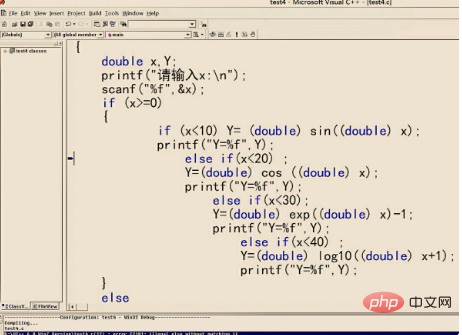

#What are the naming rules for user identifiers in C language?
For C language, the naming rules for user identifiers are as follows:
①User identifiers consist of letters, underscores, and numbers. , but it must start with a letter or an underscore;
② User identifiers cannot use system reserved keywords;
③ User identifiers are case-sensitive and can be used as variable names.

Extended information:
Basic characteristics of C language user identifiers
1. Rich operators.
2. Have structured control statements.
3. The language is concise and compact, easy to use and flexible.
4. Rich data types and various data structures in modern languages.
5. The generated target code is of high quality and the program execution efficiency is high.
6. Grammar restrictions are not too strict, and programming freedom is large.
7. Programs written in C language have good portability (compared to assembly language).
8. C language allows direct access to physical addresses, can perform bit operations, can realize most functions of assembly language, and can directly operate hardware.
Recommended tutorial: "C Language"
The above is the detailed content of What are the naming rules for user identifiers in C language?. For more information, please follow other related articles on the PHP Chinese website!